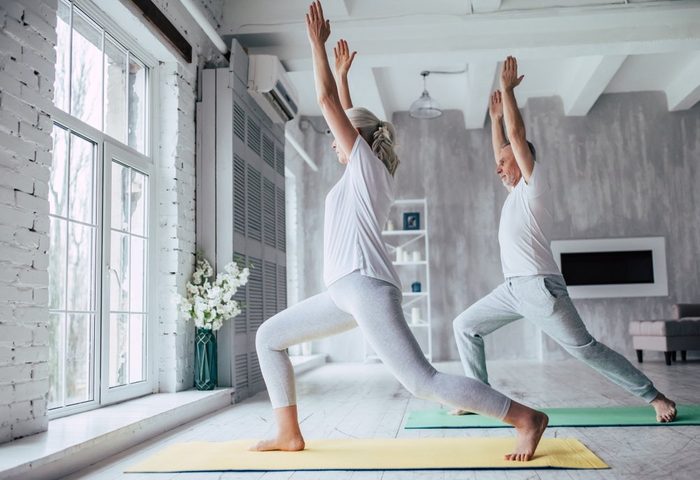
I haven’t exercised my whole life—it’s too late to start
The one thing to remember is that you’re never too old to start exercising. “There is no expiration date on our body’s ability to benefit from physical activity,” says Alice Bell, PT, DPT, a Board-Certified Clinical Specialist in Geriatric Physical Therapy, and American Physical Therapy Association spokeswoman. “Studies show that individuals who adopt an active lifestyle at any age can demonstrate improvements in strength, endurance, balance, and cognitive performance.”
I shouldn’t run anymore
A sedentary person shouldn’t attempt a marathon overnight—or even a 5K. But regular runners don’t have to stop just because they’re getting older. Running is fantastic for cardiovascular health and mental clarity. “People say that running is too hard on your joints and should be avoided, particularly as you age; however, there are many people who run well into their older age and continue to see benefit without issues,” says Chad McCann, DPT, CSCS. “While the choice to run should be individual, there is little indication that running leads to arthritis or joint damage. Some people can continue to run successfully as they age, although their distances and intensity may change to promote health.” (Before lacing up your shoes, make sure to check out these common running mistakes.)
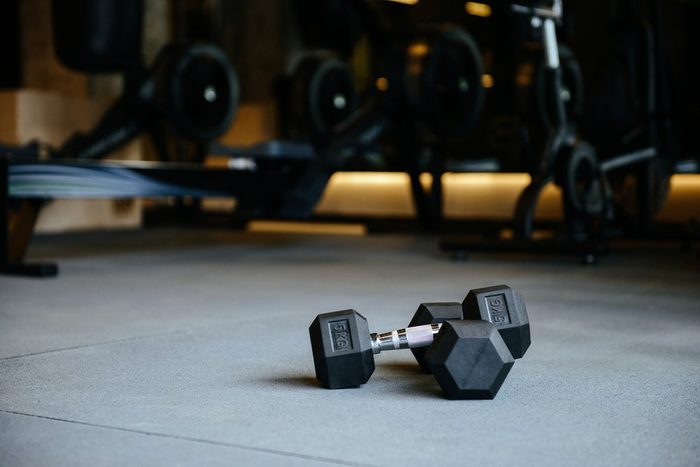
Lifting weights is bad for my joints
You don’t need to stick to two-pound weights just because you’re 50, 60, or even 70. It’s all about knowing your body and proper form. “Weight-lifting can be a very daunting form of exercise—some people are concerned that it will actually produce more harm than good. However, lifting with good form and appropriate weights has been proven to be safe and effective for strength development for all ages,” says McCann. “In addition, weight-lifting is critical for long-term bone health and general strength can be a good indicator of long-term independence. There is little evidence that weight-lifting leads to arthritis or other joint issues.”
Walking is enough
Walking is great, but your body needs more. “The greatest long-term benefits of exercise stem from working your body into overload, meaning pushing strength, flexibility, and cardio conditioning to force your body to adapt to more stressful requirements,” explains McCann. “While there is research connecting some walking to basic heart health, walking alone does not stress your heart enough to create true cardiovascular improvement.” Try building in some intervals—short bursts of fast walking or jogging—into your walks, and make time for strength training as well, he says.
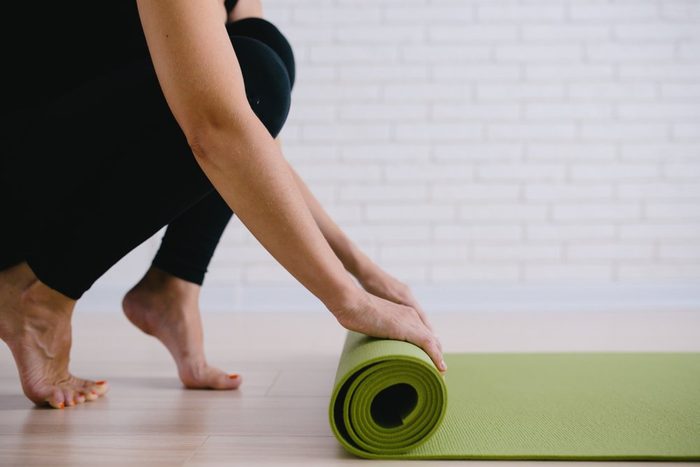
I’m inflexible, and I have to accept that
Many people say they’re inflexible, but what they really mean is that their body is tight. Although genetics play a role in how well your body can bend and stretch, you can improve on what you’ve inherited by adding regular stretching or yoga to your routine.
You can’t fix poor balance
“Balance is just like all other forms of fitness—the more you work on it, the better it gets,” says McCann. More to the point, being steady on your feet will help you avoid falls and stay healthy: “It’s another solid predictor of lifelong independence and shouldn’t be ignored in any fitness regimen.”

Always see a doctor before you start an exercise program
According to Dustin Jones, PT, DPT, creator of the Senior Rehab Project, generally healthy people don’t need to consult with a doctor. “The American College of Sports Medicine has loosened its recommendations in order to get people moving! You should see a doctor before you start a program if you have any current symptoms or a history of cardiovascular, metabolic, or renal disease. Otherwise, just consider your current activity levels and gradually progress from there,” says Jones.
I’m injured—I should wait to start working out
Doctors encourage people with hip or knee replacements to start moving as soon as possible; the reason is that keeping circulation strong and active can help speed healing. So if you have an injury, talk to your doctor or work with a trained professional to get back on your feet. “There is plenty of research that indicates a substantial pain benefit from starting a basic exercise program,” says McCann. “Improving strength and flexibility helps reduce joint irritability and improve joint lubrication.” He points to research demonstrating that exercise can reduce the psychological and emotional stress that can exacerbate pain.
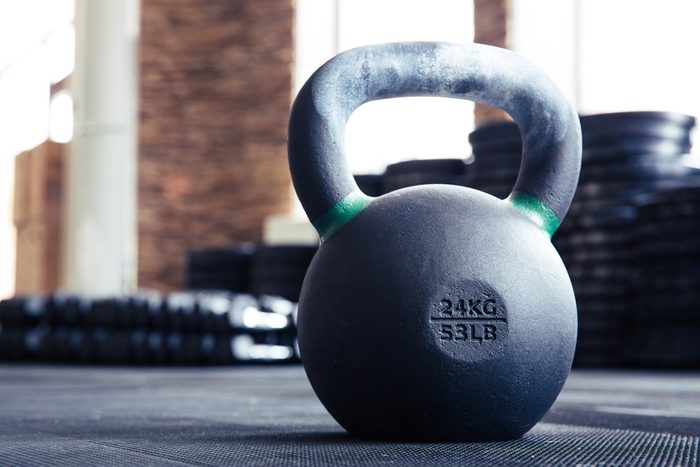
High-intensity interval training is dangerous
Time and time again, research has demonstrated that high-intensity interval training (HIIT) is one of the most effective ways to get in shape. If you’re uncertain about this technique, sign up with a fitness professional to ensure success, Jones says, but remember that it’s a form of training that can be effective for people of all ages. “HIIT has even shown to be helpful for people that have heart disease and diabetes.”
Squats will wreck my knees
There’s a reason so many trainers say their favourite exercise is a squat. “Properly performed squats will not result in knee pain or injury—they’re one of the staples of a well-rounded exercise program that can help you get a stronger lower body,” says Christina Prevett, MScPT, CSCS, PhD(c), and owner of Stave Off, a fitness facility.
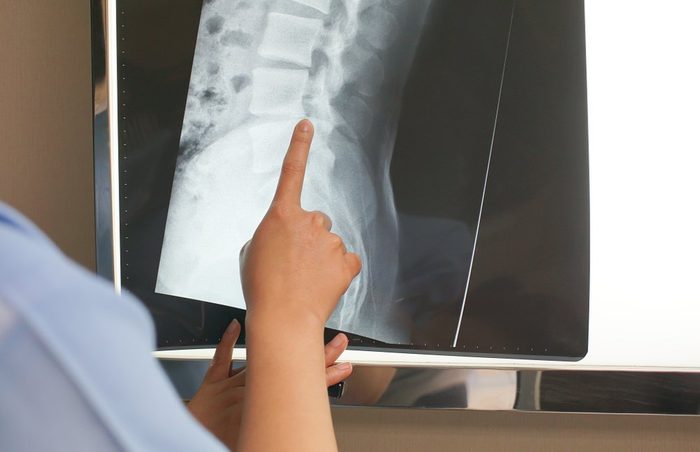
I can’t exercise, I have “bone on bone” arthritis
“We need to think of arthritis like grey hair—it’s a part of the aging process,” says Prevett. “That said, studies looking at people with no pain in their knees have found signs of ‘bone on bone’ arthritis. Many people with signs of arthritis on an X-ray report no pain in their knees. So you can exercise, even if you have arthritis. It will not accelerate the development of arthritis, especially if you exercise under the guidance of a well-trained healthcare provider or fitness professional.” It’s also worth mentioning that keeping your weight in check is one of the ways to ease arthritis symptoms.
Strength training will make me bulky and immobile
This is something women in particular worry about—but they shouldn’t, especially since strength training is key for health and weight loss. “It’s critical not to confuse strength training with bodybuilding,” says Jonathan Sullivan, PhD, owner of Greysteel Strength & Conditioning. “Bodybuilding is a sport focused on producing an extreme hyper-muscular physique for competitive or aesthetic purposes. Strength training is directed at the cultivation of strength, fitness, and health.” For the vast majority of women, even heavy-lifting will only tone their bodies.
“Women lose muscle, bone, and strength faster than men, making weight training a critical part of any woman’s fitness program,” explains Sullivan. “Women can and should engage in training, including strength training, with the same exercises and programs that benefit men.”
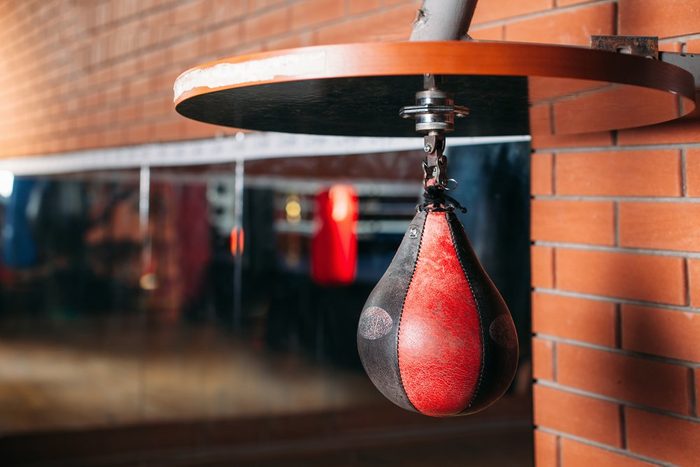
I can’t get stronger
Not only can you maintain strength at 50-plus, but you can also be stronger than your younger self. “Too many people change their workout routine with age to include low resistance exercise under the guise that they can’t improve anyway,” says McCann. “While it might take more time, your muscles will still adapt under strength work loading to improve in strength.” The key to this, along with a healthy diet, is regular exercise.
As I get older, I should avoid pain when exercising
“It may be true that there are certain types of pain you should avoid with exercise,” says Paul Gardner, PT, GCS, and administrator of community rehab for Hillcrest Rehab Services. Chest pain is an obvious one, for example. “However, to achieve gains in strength and endurance, your muscles must be overloaded,” he says. “A byproduct of overloading muscles at any age is muscle soreness and sometimes mild joint aches and discomfort.” And that’s a healthy type of pain.
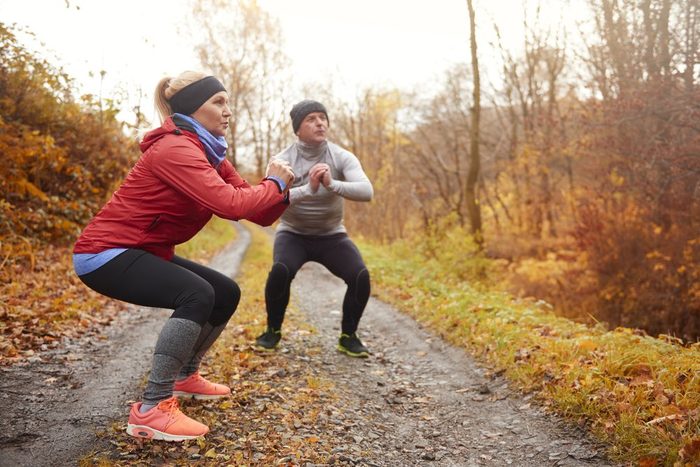
Exercise is too risky—I might fall
There’s always anxiety over trying something new but don’t let fear stop you. “A physical therapist can develop a balance-and-exercise program tailored to your individual goals and abilities, and gradually build your confidence, along with your balance, strength, and endurance,” says Greg Hartley, PT, DPT, a Board-Certified Clinical Specialist in Geriatric Physical Therapy, and President of the Academy of Geriatric Physical Therapy. “These improvements go a long way towards decreasing your falls risk.”
I’m skipping exercise because I want to keep my mind fit
Physical exercise has benefits that go far beyond your muscles, lungs, and heart. “Working out has significant positive effects on the brain too,” says Bell. “There’s growing evidence that being physically active benefits brain health and can help slow the decline in brain function that comes with age.”

Because of my chronic health problems, I should skip exercise
Actually, staying active is a great way to improve many chronic health issues: “Research demonstrates that exercise can improve symptoms of virtually all chronic health conditions, from diabetes to heart disease to arthritis,” says Hartley. “Exercise might even reduce the need for some medications. If you have a chronic health condition, consult with a physician or physical therapist prior to beginning a new exercise program. After making a diagnosis, physical therapists create personalized treatment plans that help their patients improve mobility, manage pain and other chronic conditions, recover from injury, and prevent future injury and chronic disease.”
Next, you’ll want to read up on the daily habits that help you live longer.
